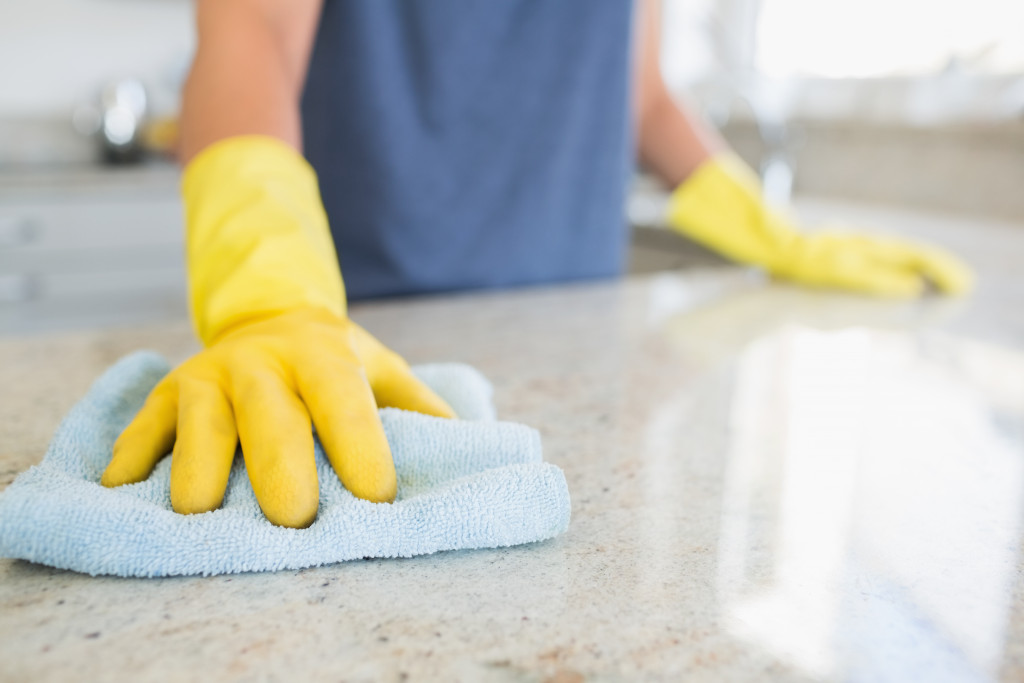Your home is your castle, and this is where you go home and rest. This is also where you spend time with your family and friends. Of course, you would want your home to be a haven, not only from thieves but from germs as well. Unfortunately, your lovely home is a breeding ground for germs, and you might not even be aware of it.
According to WebMD, germs and bacteria can thrive in the most surprising of places. While it might seem surprising to you, your bathtub may indeed have more germs than your toilet. In fact, your kitchen may be one of the dirtiest rooms in your house, and that is a frightening thought because this is the place that you prepare food for your family and loved ones.
FoodSafety.gov says that the most common reason for food poisoning is the presence of bacteria and viruses. Among the common bacteria found in the kitchen include E. coli, salmonella, and listeria. If you are not careful, the food that you prepare can be a recipe for disaster. Before preparing food, it is always important to take note of the following rules on food safety:
Clean Your Hands, Work Surface, and the Food Thoroughly
This goes without saying. When you prepare your food, it is always important that you clean the food properly, especially raw food such as poultry and pork. Fruits and vegetables also have to be rinsed properly.
The most important thing you have to remember is to wash your hands for twenty seconds with soap and water. This must be done before, during, and after you prepare your food.
It’s also vital that you clean your utensils and kitchen surfaces before using them, as well as after.
When Considering Kitchen Countertop Space, Go for the Best Ones
You might not be aware of it, but your choice in your kitchen countertop can also help in minimizing bacteria and viruses in your kitchen. While wooden and natural stone countertops are beautiful, they are made of porous materials, which can be a breeding ground for bacteria and viruses. They can get into the tiny crevices on these surfaces.
To keep these bacteria and viruses in your kitchen at a minimum, it is recommended that you choose kitchen countertops made of a non-porous material, such as quartz, laminate, and granite. These stone countertop surfaces must be cleaned carefully to reduce bacteria from getting into the nooks and crannies. If you are thinking of replacing your current kitchen countertop, look for stone countertop installation services.
Don’t Forget the Kitchen Sink

It might sound surprising, but your kitchen sink is one of the dirtiest areas in your entire house. In fact, Eileen Abruzzo, who is the director of infection control at Long Island College Hospital of Brooklyn, says that your kitchen sink could be dirtier than your toilet.
Surprising? Abruzzo says that the food particles left to soak in your sink become a cesspool for illnesses that cause bacteria. These viruses, which include E.coli, may get into your hands or spread to surfaces or even your food.
This happens because you might be complacent when it comes to cleaning your kitchen sink, thinking that it does not get dirty. However, this is not true, and you should also go to great lengths to making sure that your kitchen sink is cleaned and disinfected.
Abruzzo recommends that the best way to sanitize your sink is to have a mixture of bleach and water run down the drain once every day. It would help if you also remembered to have the drain plug cleaned as well.
Take Out the Trash
While it might seem like a monotonous task, you must empty your trash can at the end of the day. Not only is it a breeding ground for germs, but you will also be attracting cockroaches, rats, and flies. These pests can also carry germs that can harm your loved ones. So do yourself and your family a favor and put the trash in its place, which is outside your home.
Keeping your home safe from viruses and bacteria should be a top priority. Remember that illnesses can be prevented when you prevent them from happening. A clean home is a happy home, and it is your duty to keep it that way. After all, a good cleaning every day keeps the germs and viruses at bay. So take the necessary steps to ensure that your home is free from anything that can cause illnesses.


